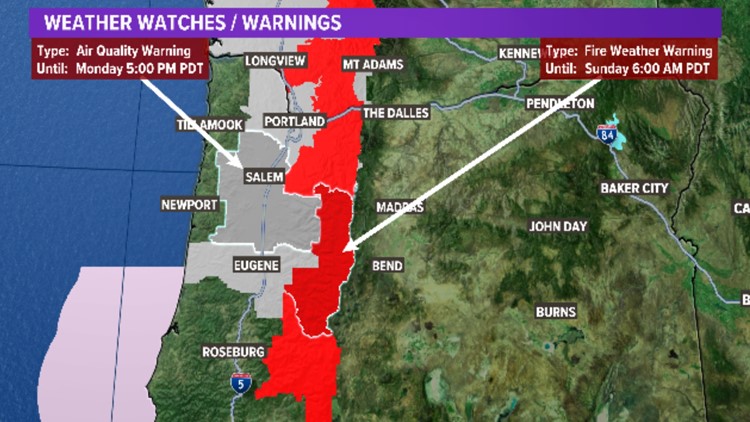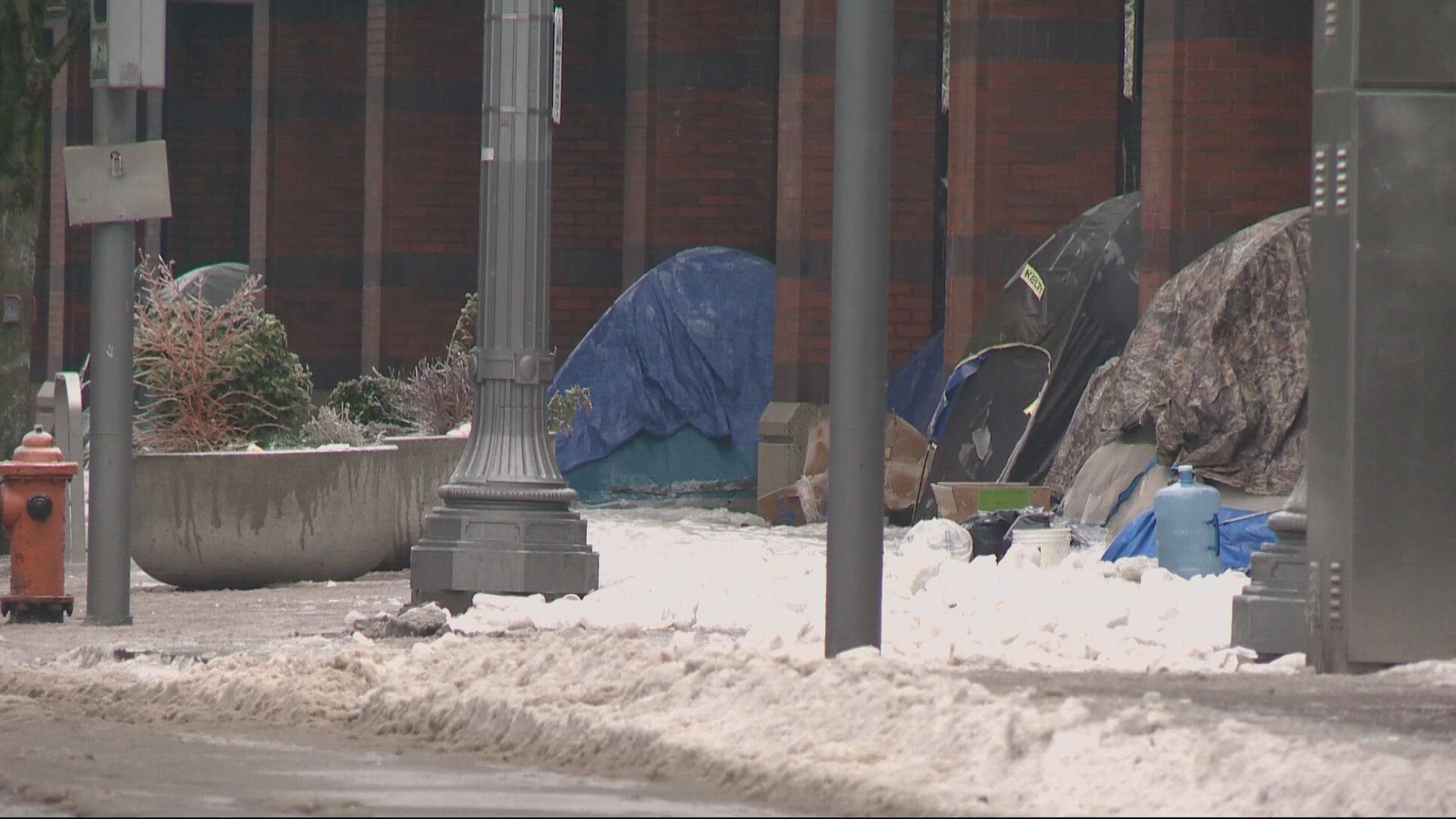PORTLAND, Ore. — National Weather Service officials have issued weekend red flag warnings for Oregon and Washington around the Cascade Mountains because of east winds and low humidity contributing to critical fire weather conditions.
Officials said east winds will increase late Friday night. The National Weather Service in Portland predicts east winds to reach up to 25 mph gusts, while the relative humidity could drop as low as 15 to 20%. The conditions, along with warmer than average temperatures, make it easy for fires to spread quickly.
“Minimize the potential for creating sparks by obeying all burn restrictions and preventing motor vehicle engines from idling on top of dead grass along roadsides,” the National Weather Service in Portland posted on Twitter Friday.
Several fires started amid similar conditions last month including the Bolt Creek Fire, which continues to burn northeast of Seattle and at times close U.S. Highway 2 near Skykomish. The highway closed again Thursday night because of fire-related falling trees.
The highway reopened Friday afternoon with officials saying no weekend closures were planned but that people should be prepared because of the fire forecast.
Smoke from that fire and others has also been impacting air quality around the region, which was also expected to continue over the weekend.
“It may be October, but it’s clear we’re not out of the woods when it comes to wildfire smoke and the dangers it can bring,” Kaitlyn Kelly, air quality policy specialist for the Washington Department of Health, said in a statement.
Cooler weather and winds to clear the smoke were expected to arrive Monday, with a high probability of rain to move in next weekend, officials said.
Scientists say climate change has made the West warmer and drier over the last three decades and will continue to make weather more extreme and wildfires more frequent and destructive.



